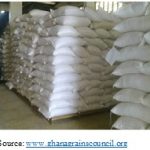The World Bank has launched its report on Enabling the Business of Agriculture (EBA) 2017, which analyses the impact of regulatory environment on agricultural performances and identifies good practices for enabling the business of agriculture. The report provides valuable insights into regulatory frameworks and institutions that can potentially increase access to inputs and markets for higher agricultural productivity and […]
Mothers’ Non-Farm Entrepreneurship and Child Secondary Education in Rural Ghana
New discussion paper provides an empirical insight into the impact of mothers’ non-farm entrepreneurship on the propensity of child secondary school enrollment.
Does Warehouse Receipt Financing Benefit Ghanaian Smallholders?
Proponents of warehouse receipt systems argue that they benefit smallholder farmers by allowing them to store surplus grains in a secure facility to sell later in the season when prices tend to be higher. In the interim, receipt holders can use the stored commodity as collateral to secure loans to finance household consumption and investment […]
Fall Armyworm in Africa: A Guide for Integrated Pest Management
Feed the Future (USAID), the International Maize and Wheat Improvement Center (CIMMYT) and the CGIAR Research Program on Maize (MAIZE), have come up with a new comprehensive integrated pest management (IPM)-based technical guide to tackle the fall armyworm outbreak across the African continent in the last two years. The fall armyworm has been identified in […]
The Cocoa Coast: The Board-Managed Cocoa Sector in Ghana
The forthcoming book by Shashi Kolavalli and Marcella Vigneri, The Cocoa Coast: The Board-Managed Cocoa Sector in Ghana, seeks to understand the success of a sector revived through the restructuring of a parastatal, namely the Ghana Cocoa Board (COCOBOD), in an era of market liberalization. The book studies the drivers of success of the cocoa […]
- « Previous Page
- 1
- …
- 4
- 5
- 6
- 7
- 8
- …
- 22
- Next Page »




